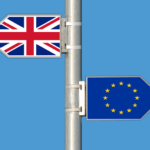The Council adopted a decision on the conclusion of the agreement between the European Union and the government of the People’s Republic of China on cooperation on and protection of geographical indications (GIs).
A list of 100 European agri-food GIs, such as Queso Manchego, Champagne, Cava, Polska Wódka, Feta, Münchener Bier, Irish whiskey, Porto, Prosciutto di Parma and Ouzo, will be legally protected in China against imitations and the misuse of a product’s name. Likewise, 100 Chinese products, for example Pixian Dou Ban (Pixian Bean Paste), Anji Bai Cha (Anji White Tea), Panjin Da Mi (Panjin Rice) and Anqiu Da Jiang (Anqiu Ginger), will be protected in the EU, thereby ensuring mutual respect of the best of both agricultural traditions.
It’s the first time we have signed an agreement with China for a mutual protection of geographical indications. European products will be better protected in the Chinese market with respect to similar products which do not have the origin indicated by that geographical indication. This will help European exports to China and strengthen their market position.
Peter Altmaier, Federal Minister for Economic Affairs and Energy of Germany and President of the Trade Council
Next steps
After the European Parliament consent on 11 November 2020 and the decision adopted today in the Council, the agreement could enter into force at the beginning of 2021.
Within four years, the scope of the agreement will expand to cover an additional 175 geographical indications from both sides. The agreement also includes a mechanism to add more GIs thereafter.
Background
The cooperation between the EU and China in the area of geographical indications started in 2006 and resulted in a first batch of 10 products protected on each sides six years later.
In 2019, China was the third largest destination for EU agri-food products, worth €14.5 billion. It is also the second largest destination for EU exports of products protected by GIs, accounting for 9% by value, including wines, spirits and other agri-food products.
In value terms, the market for EU geographical indications is around €74.8 billion, or 6.8% of EU food and drink, and exports worth €16.9 billion account for 15.4% of all EU food and drink exports.
More information
Press Release- European Council
Text of the EU-China agreement on GIs, 9 July 2020
Council decision on the signing of the EU-China agreement on GIs, 9 July 2020
Council authorises signature of the agreement (press release, 20 July 2020)
Council decision on the conclusion of the EU-China agreement on GIs, 23 October 2020
EU and China sign landmark agreement protecting European Geographical Indications, 14 September 2020







Leave a Reply